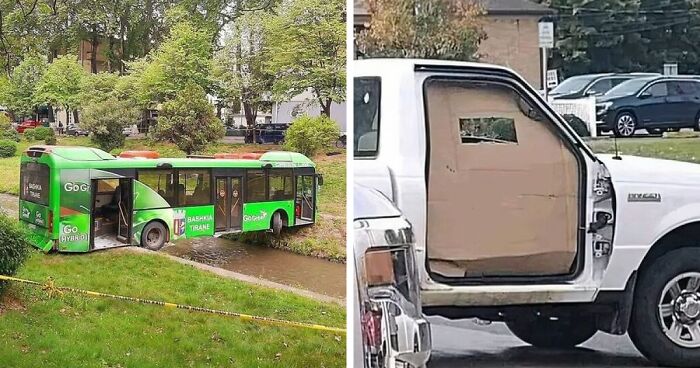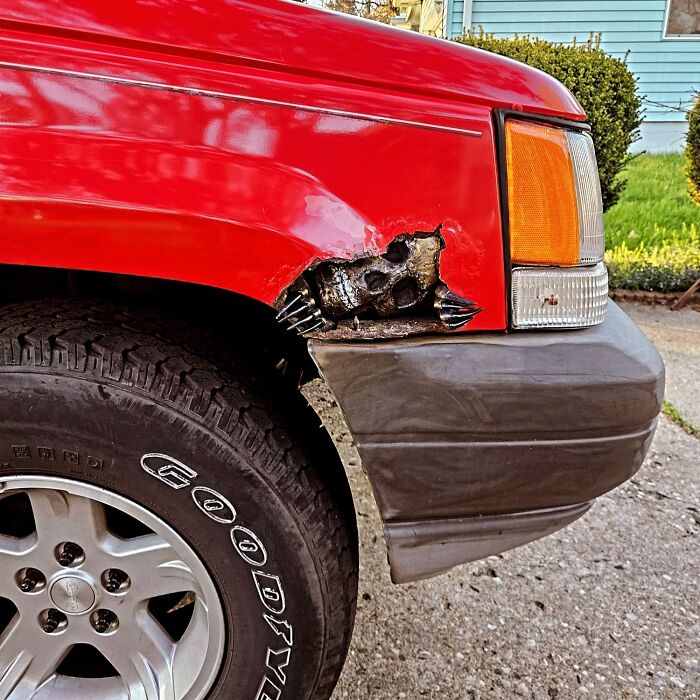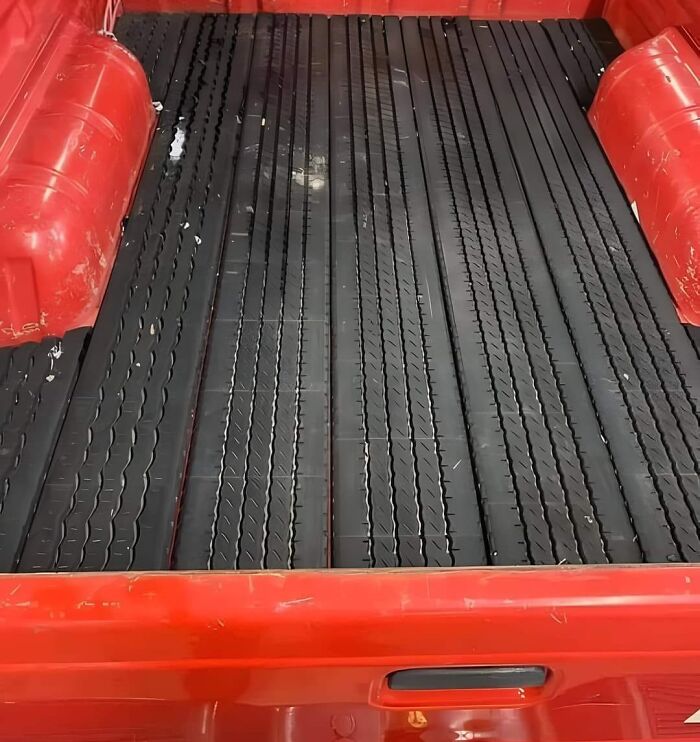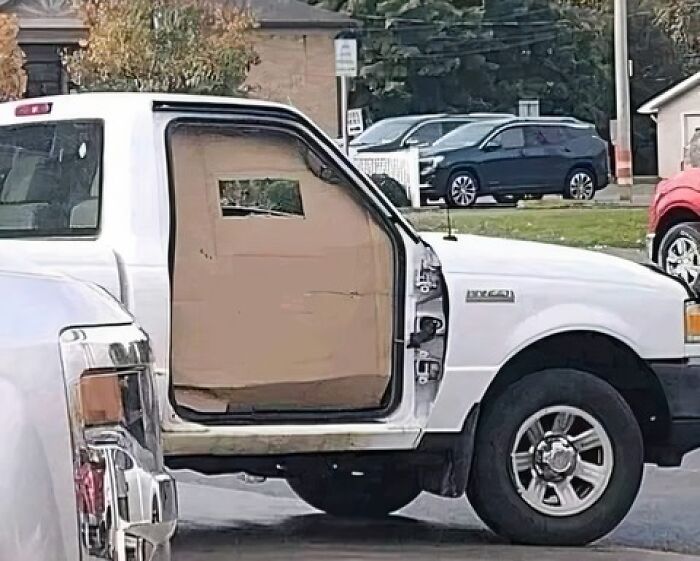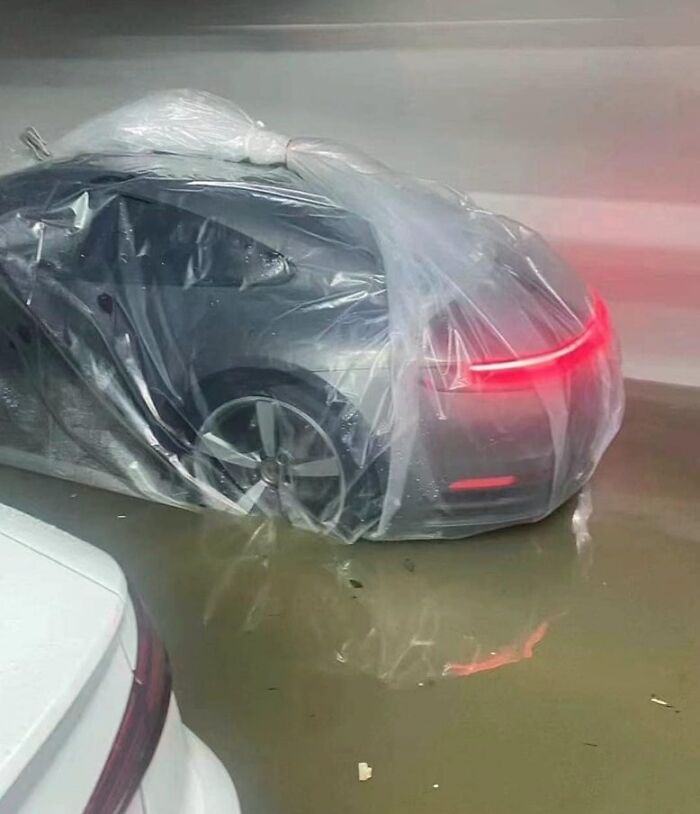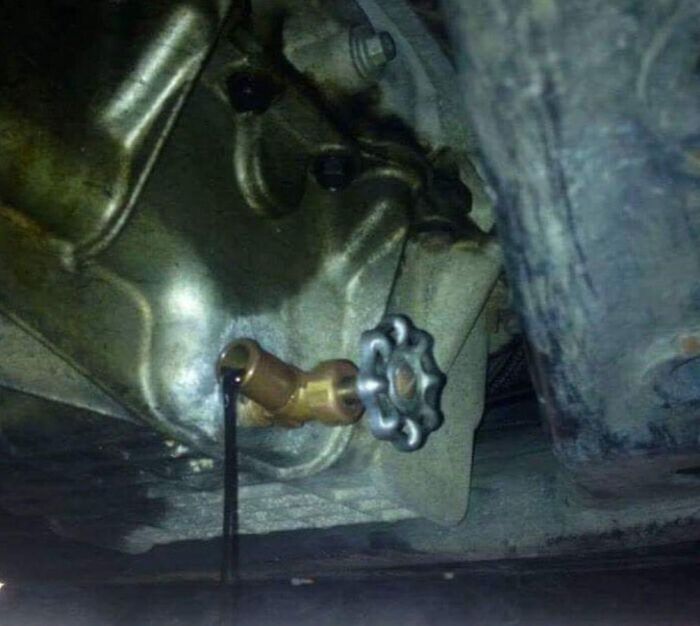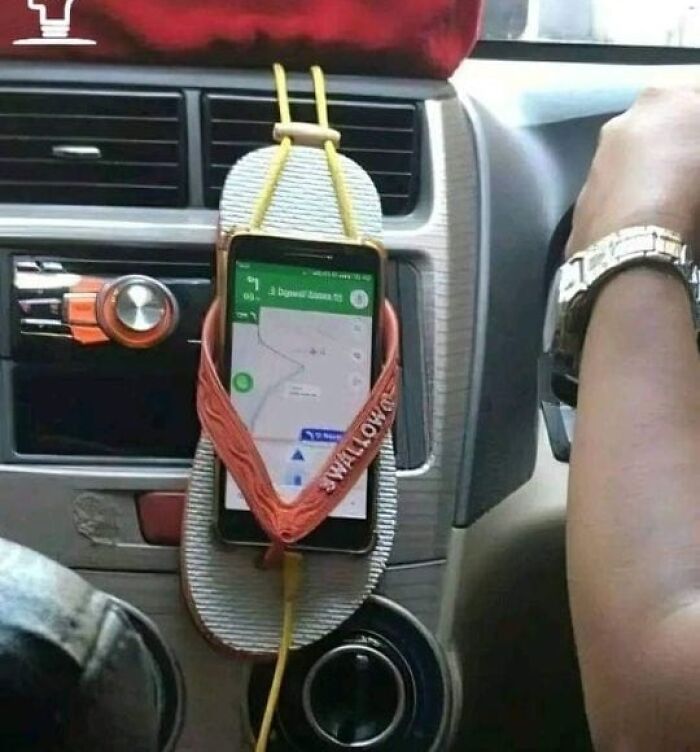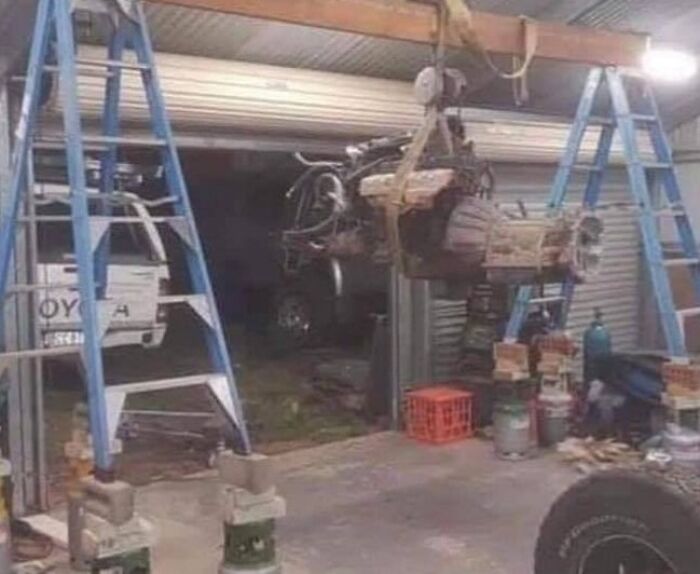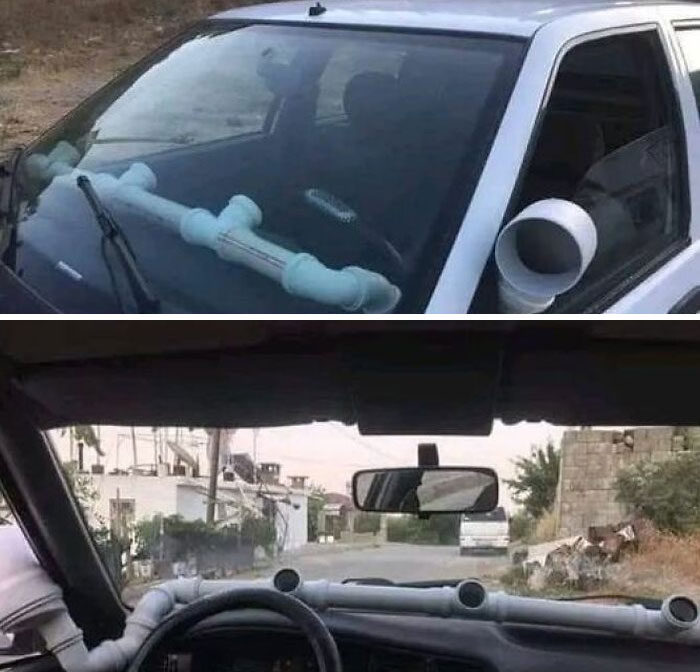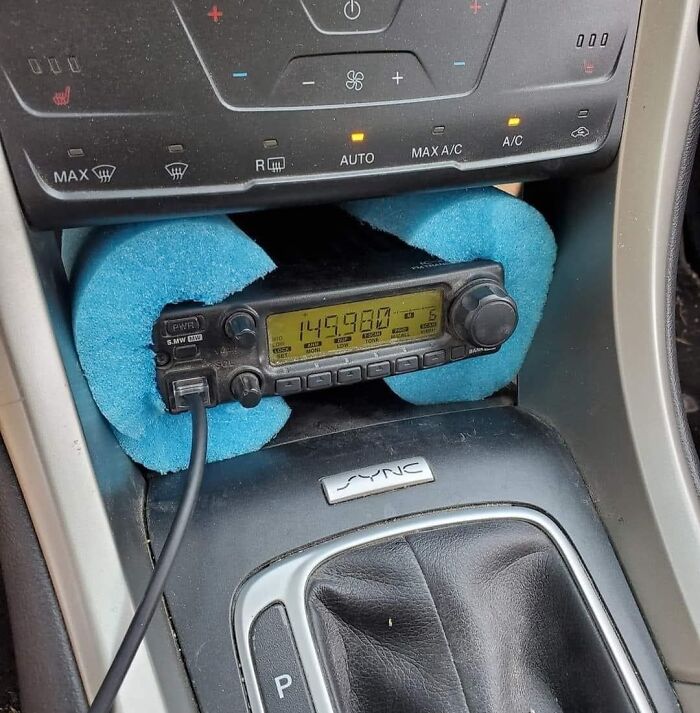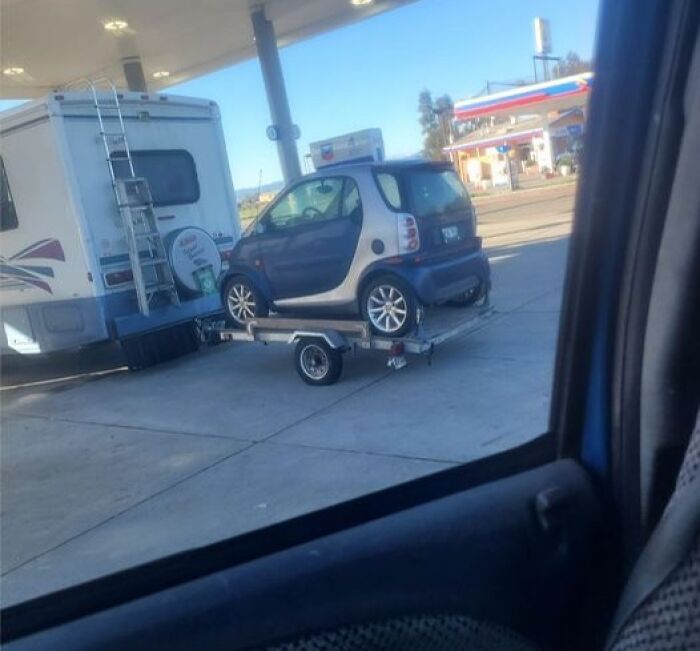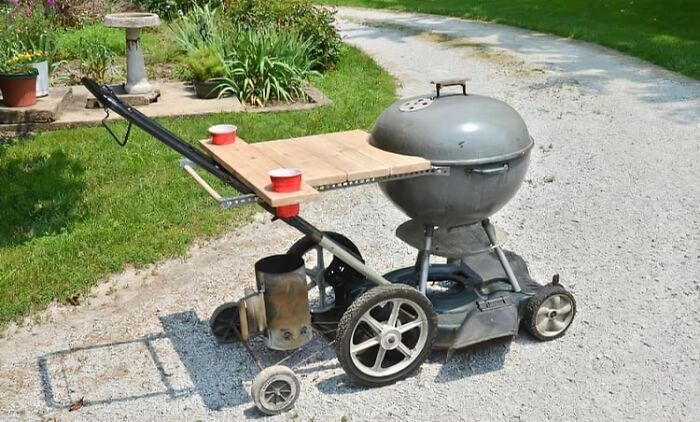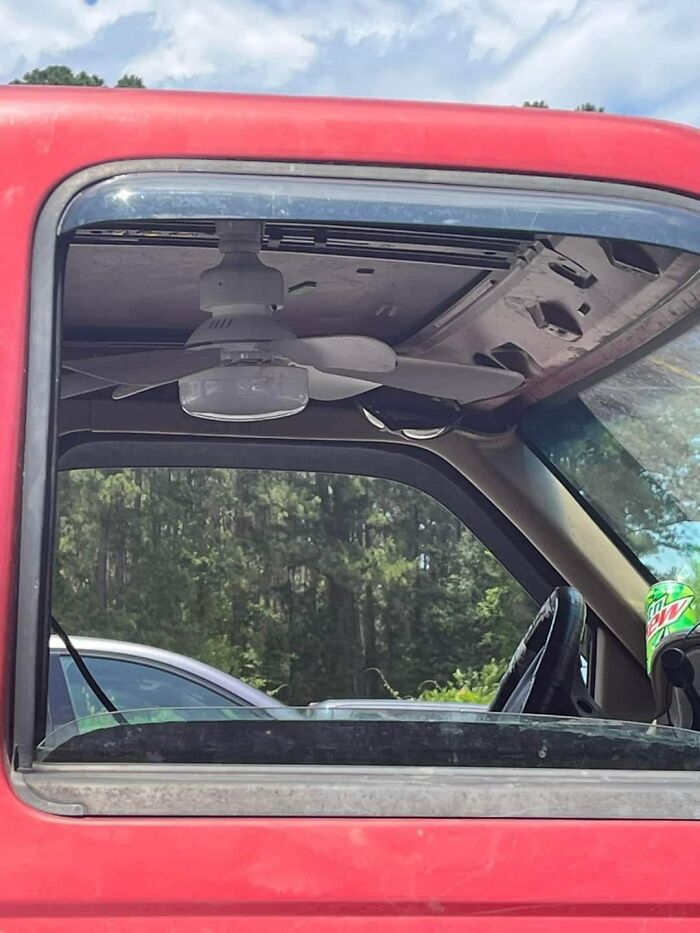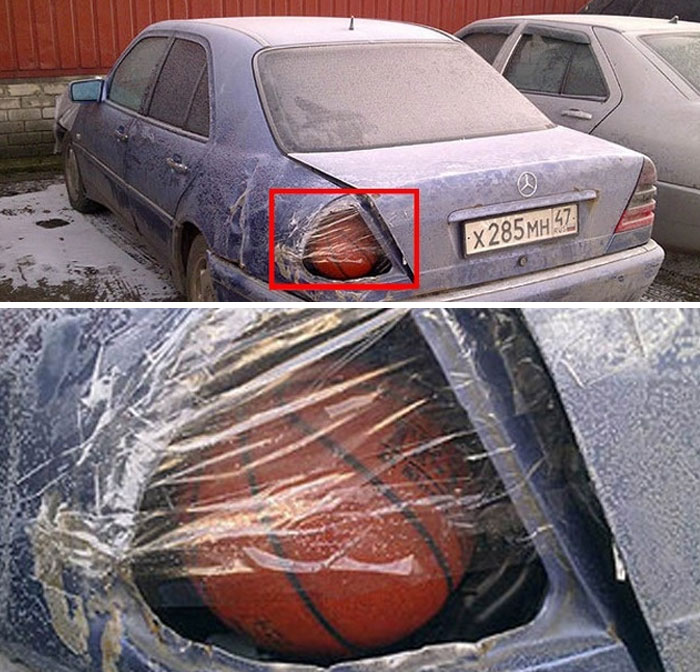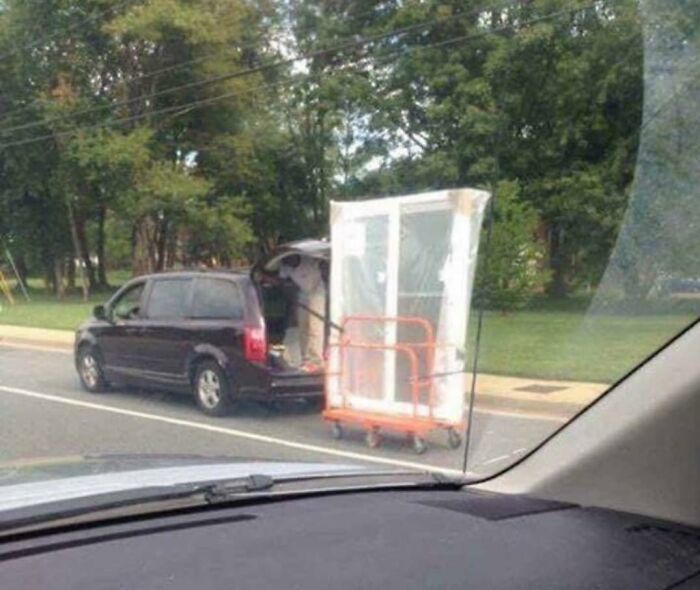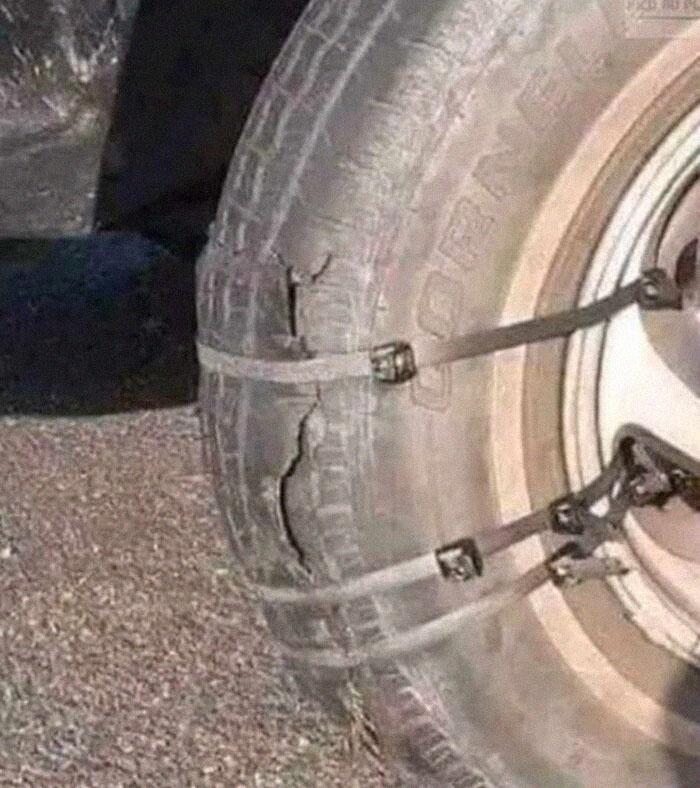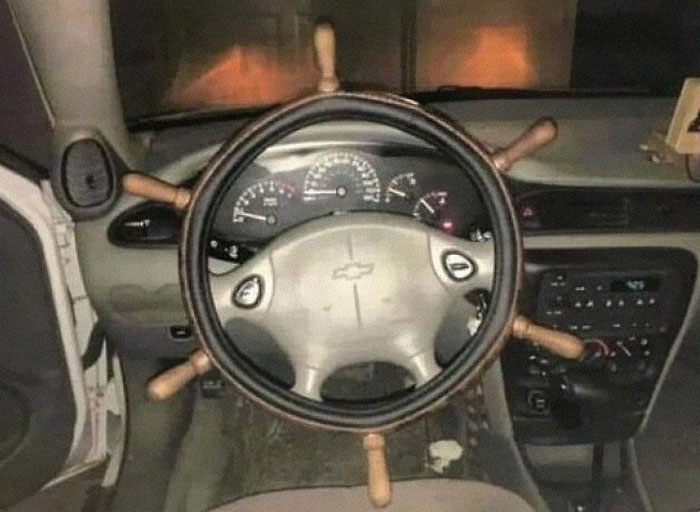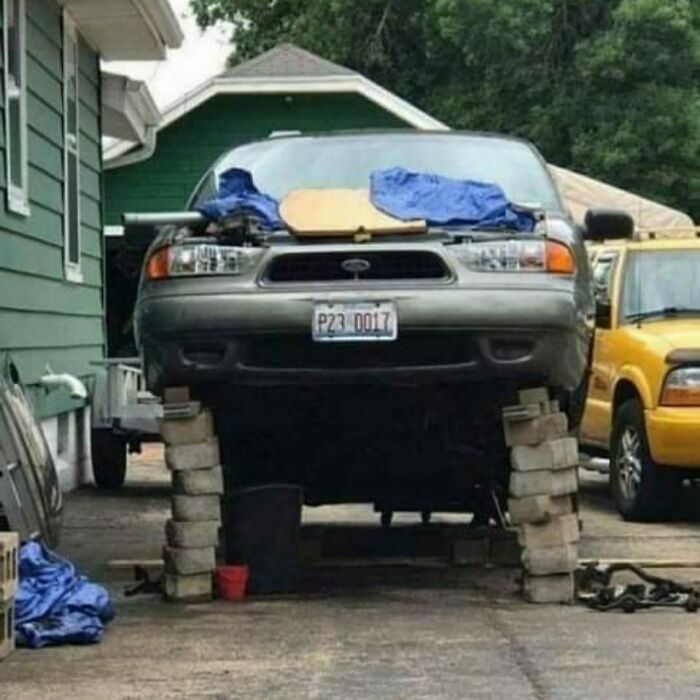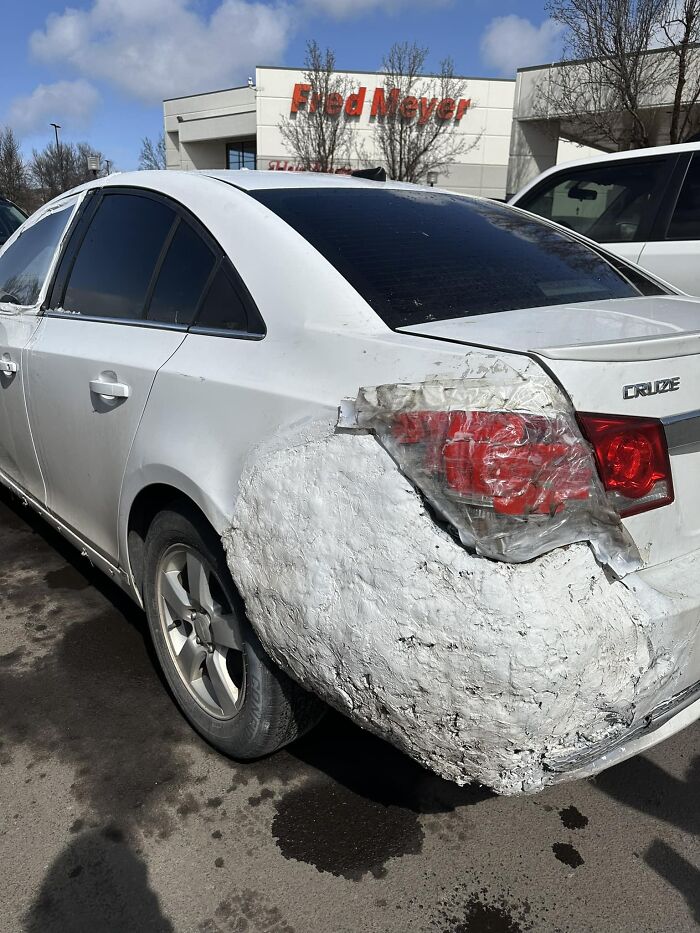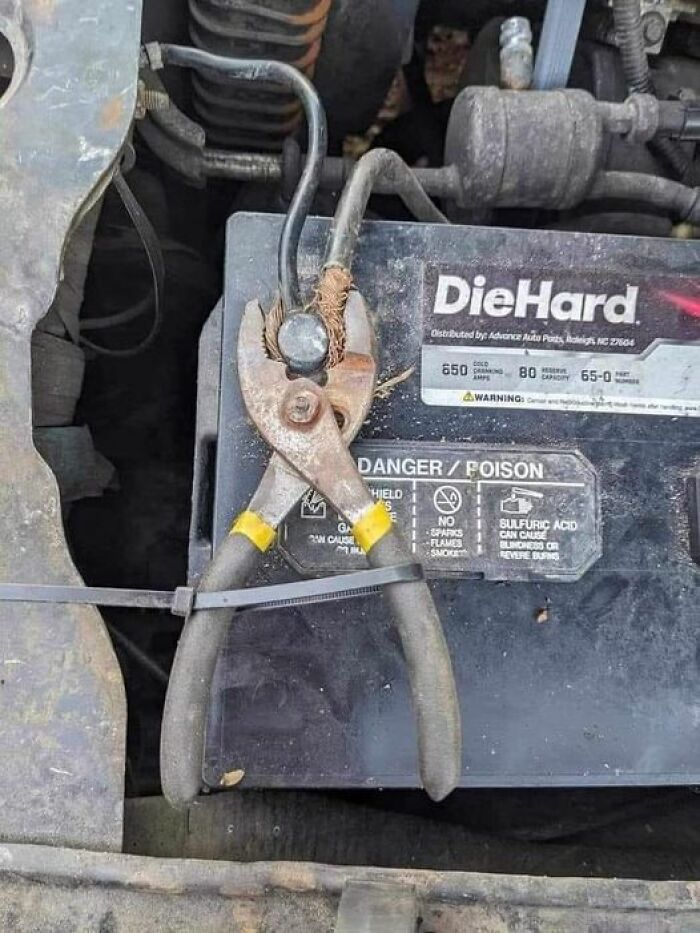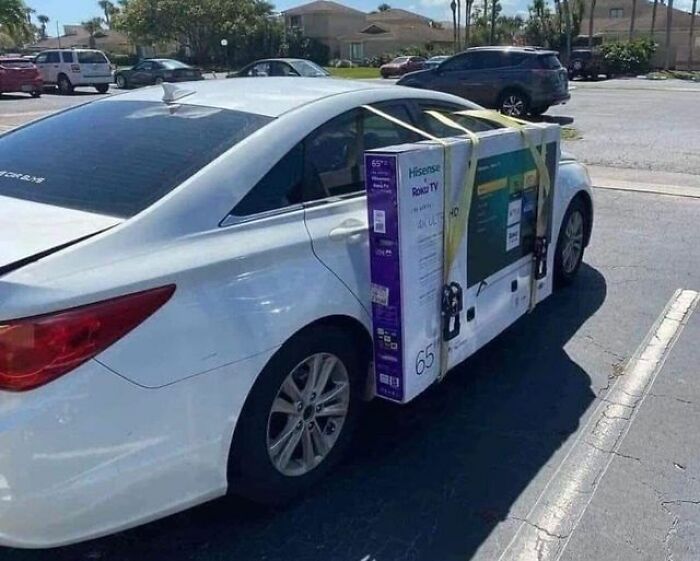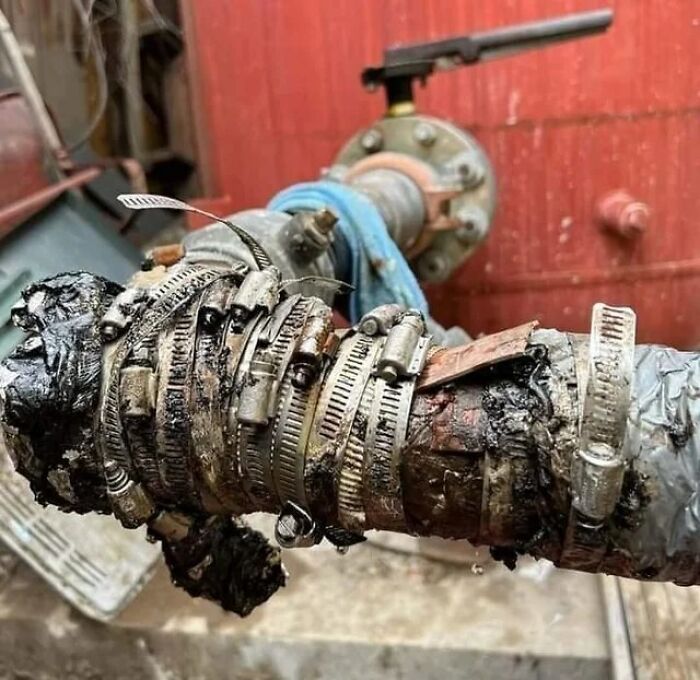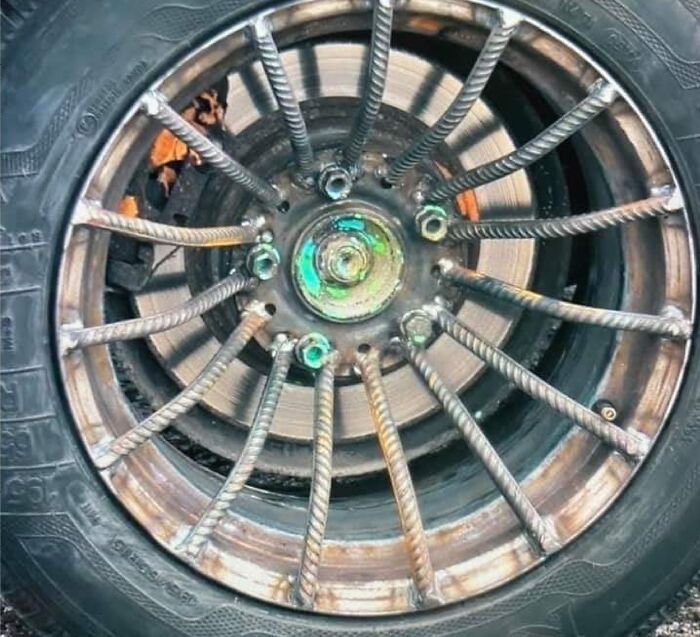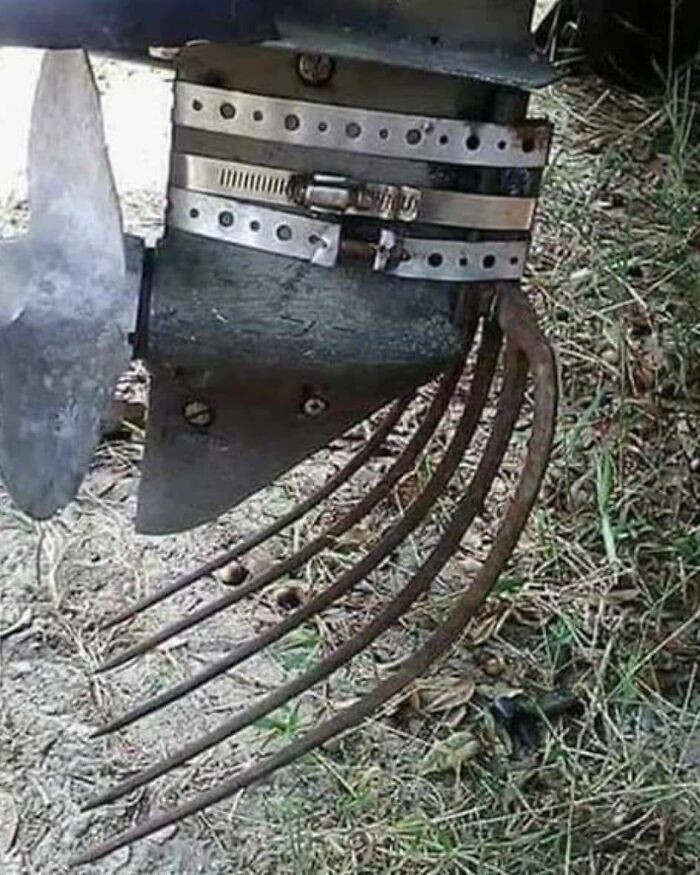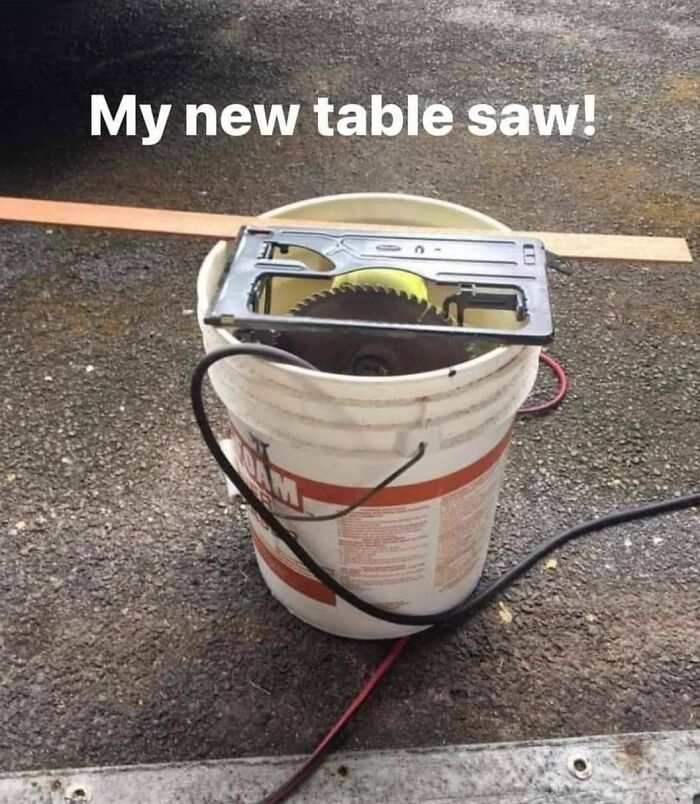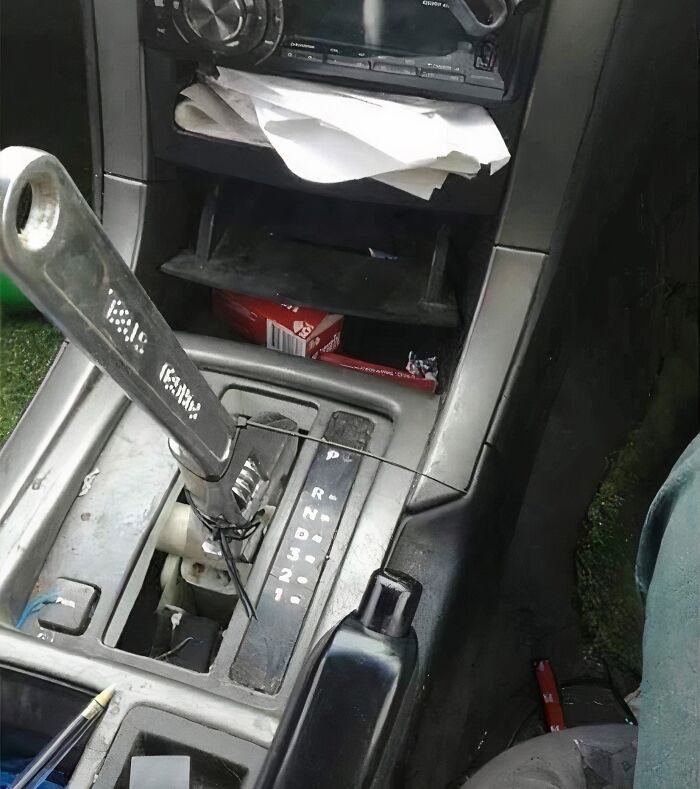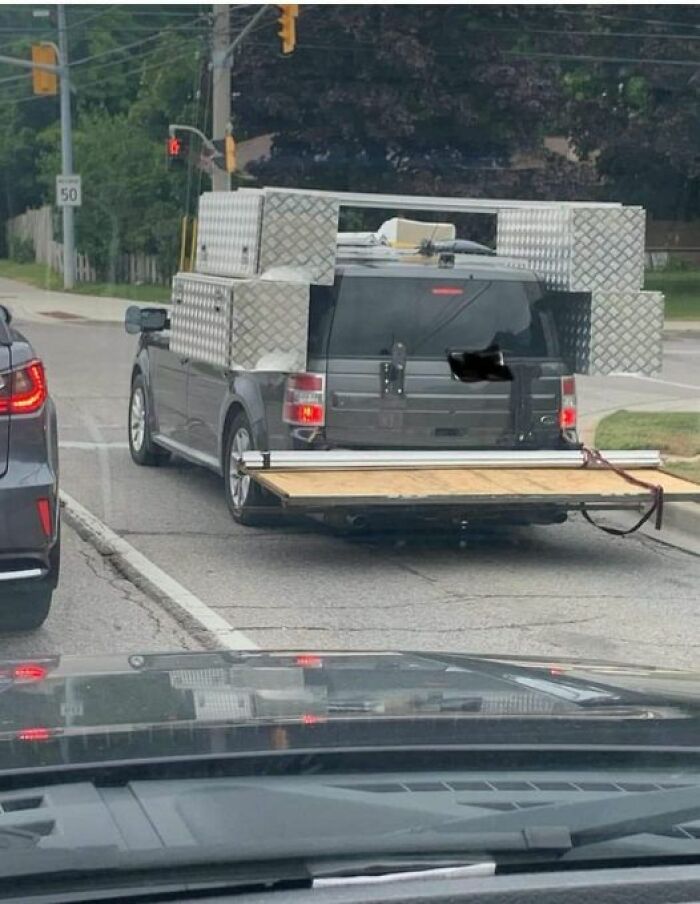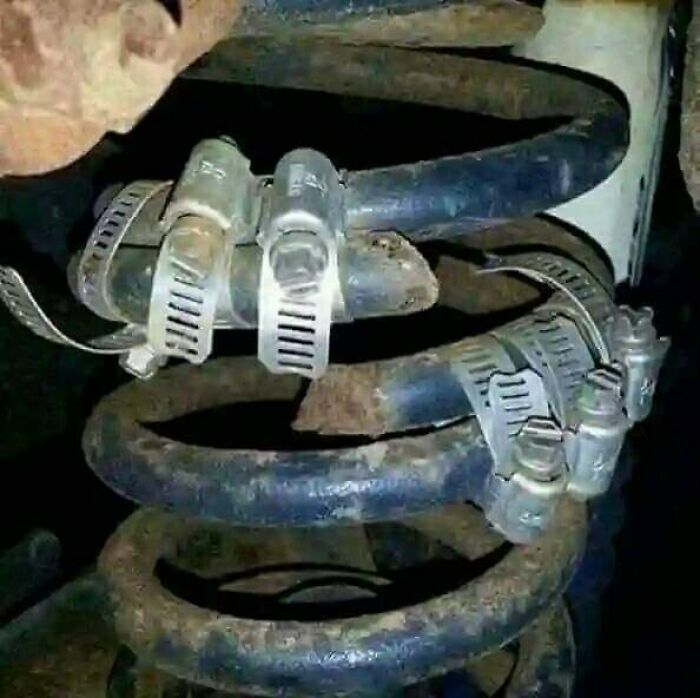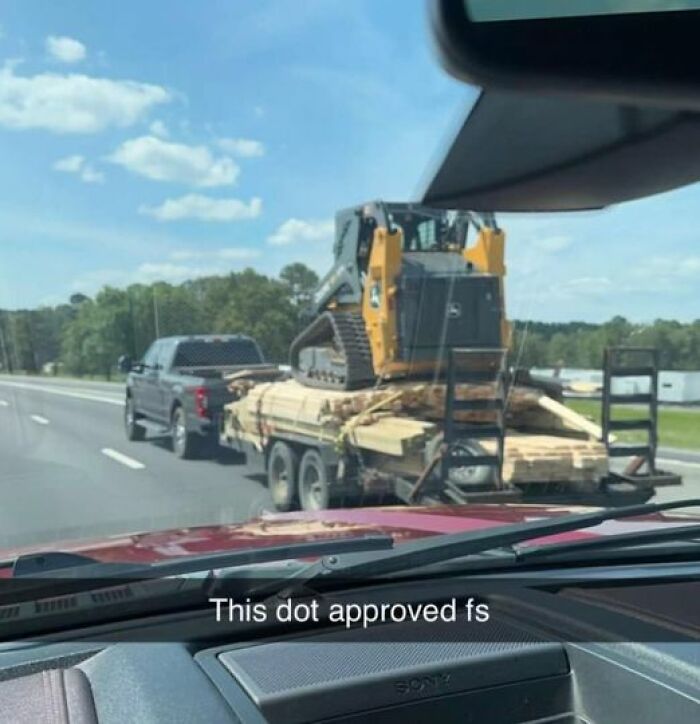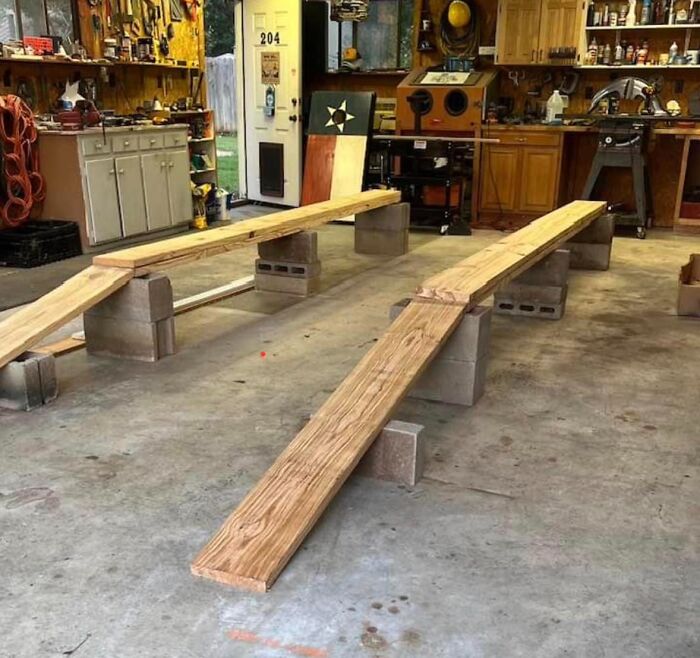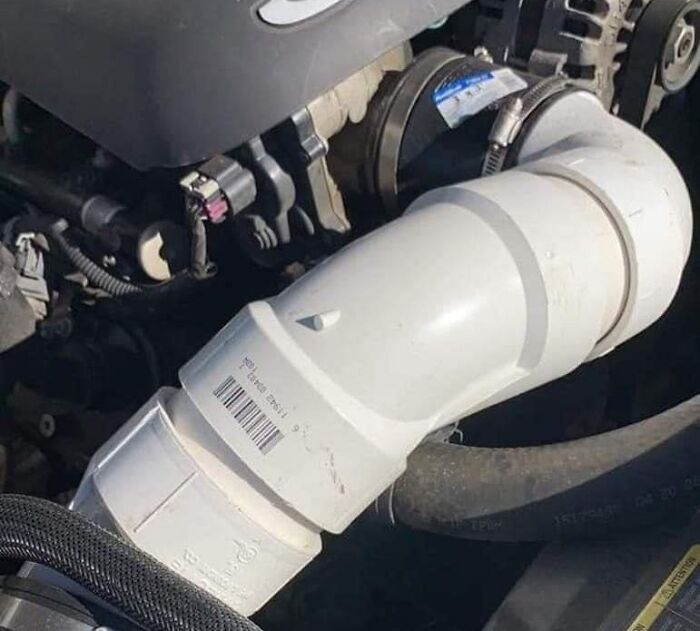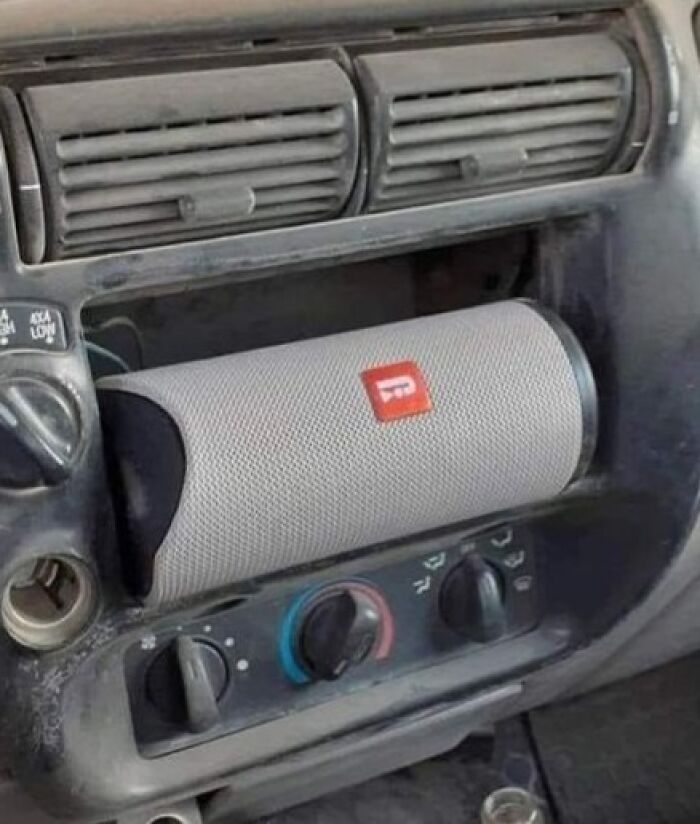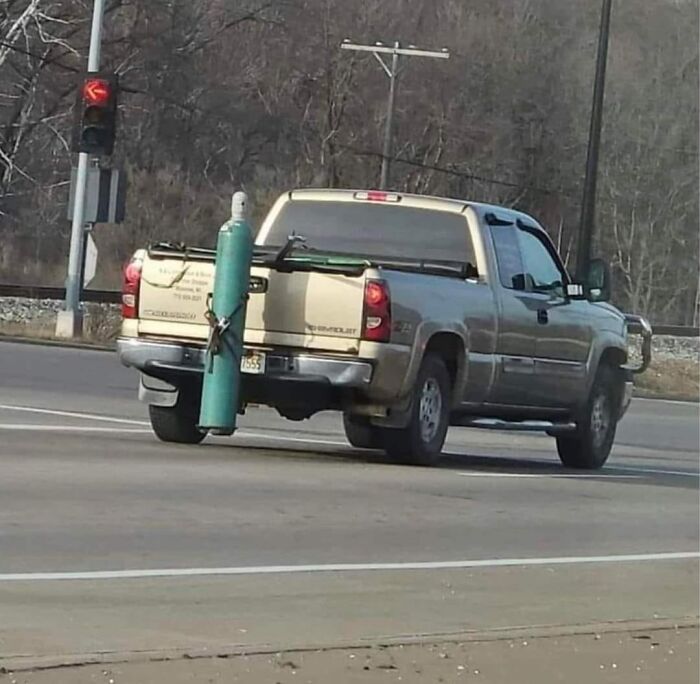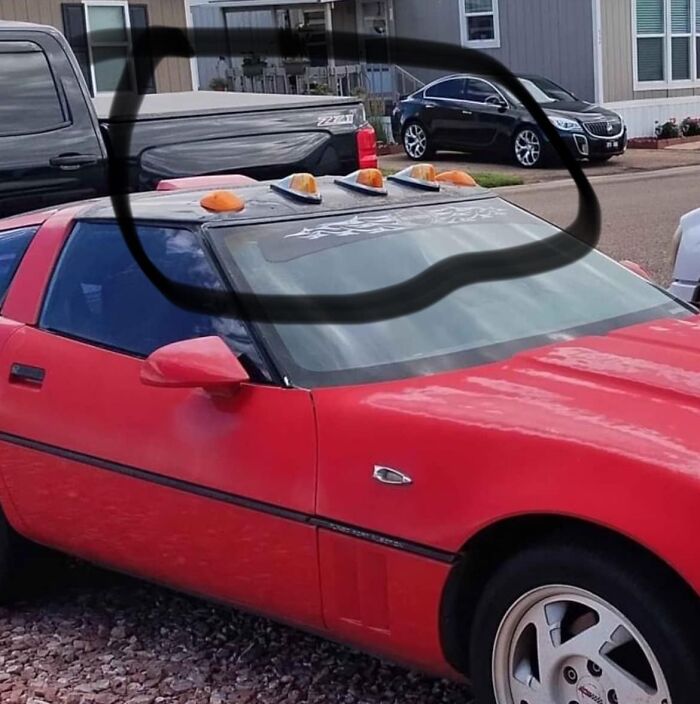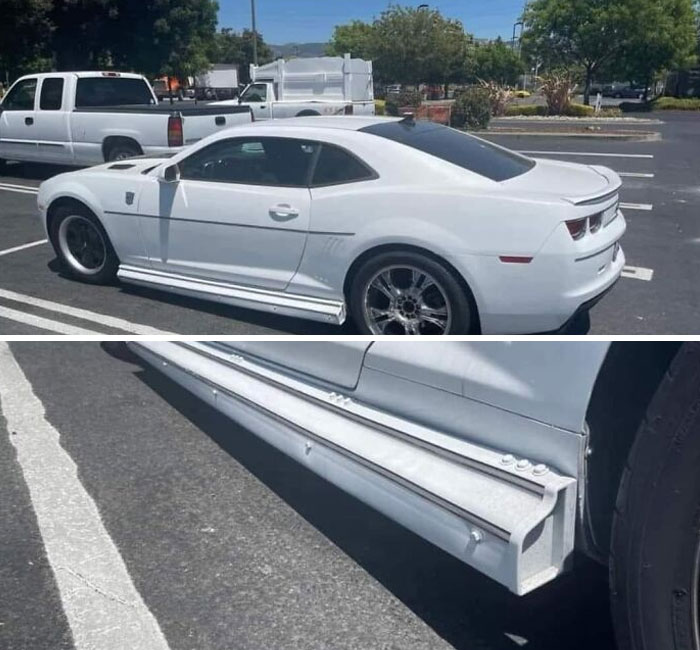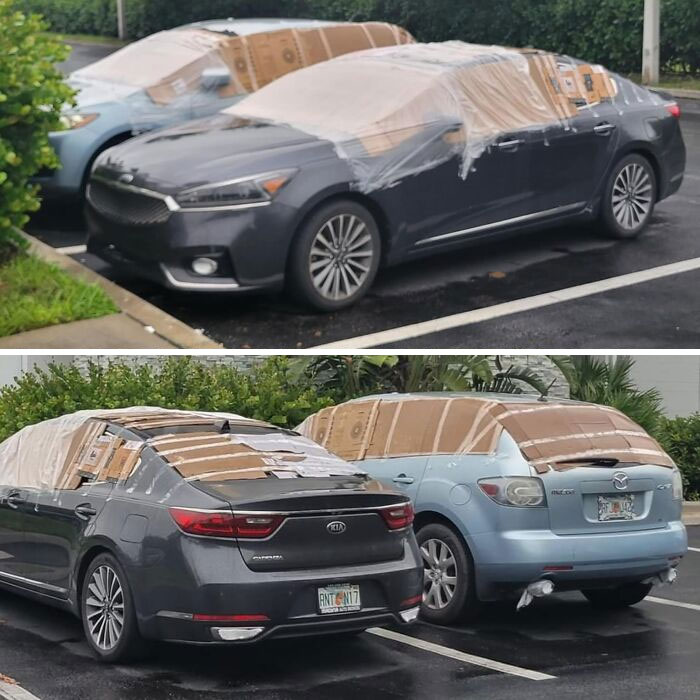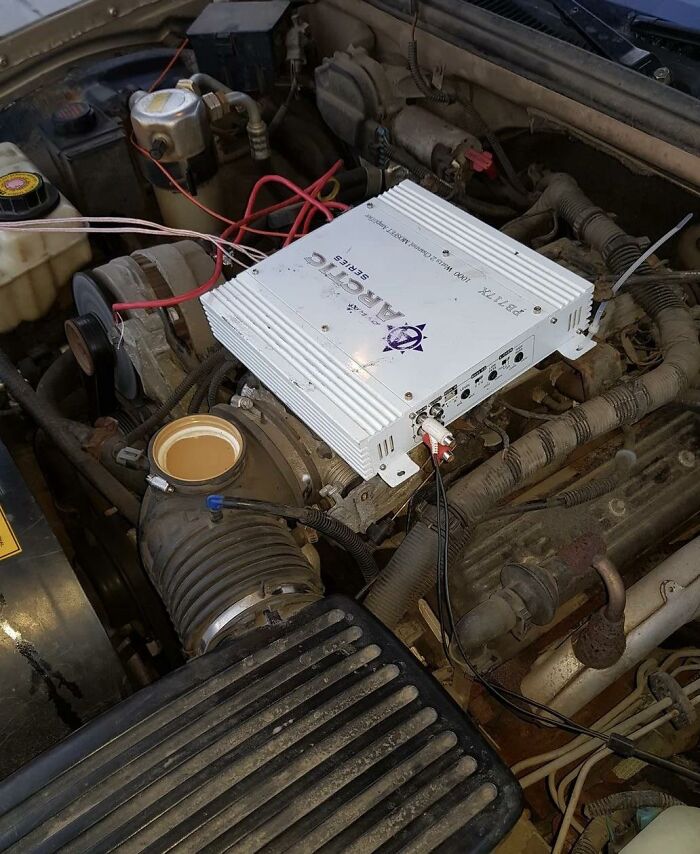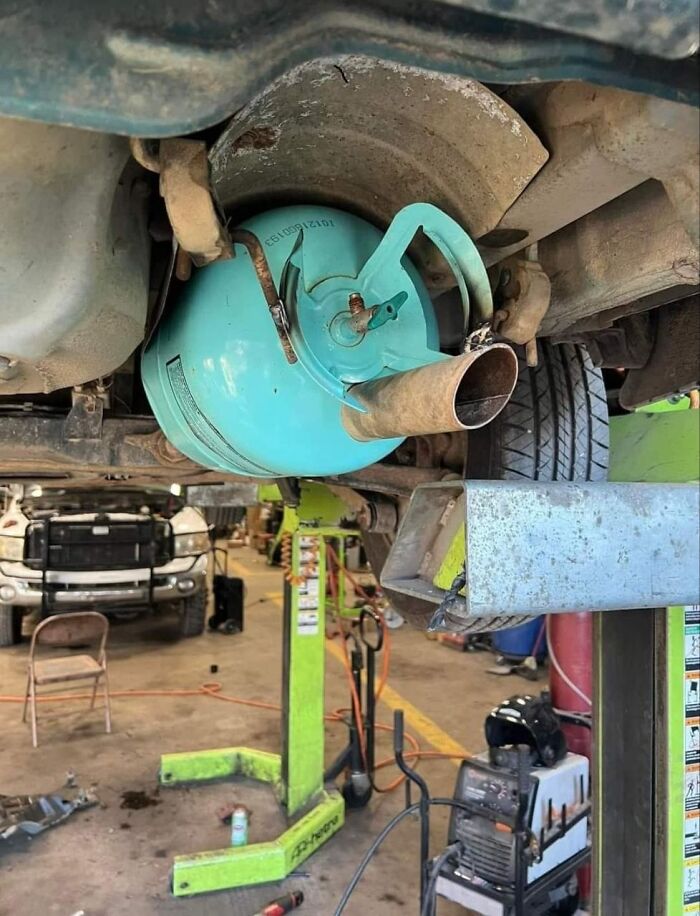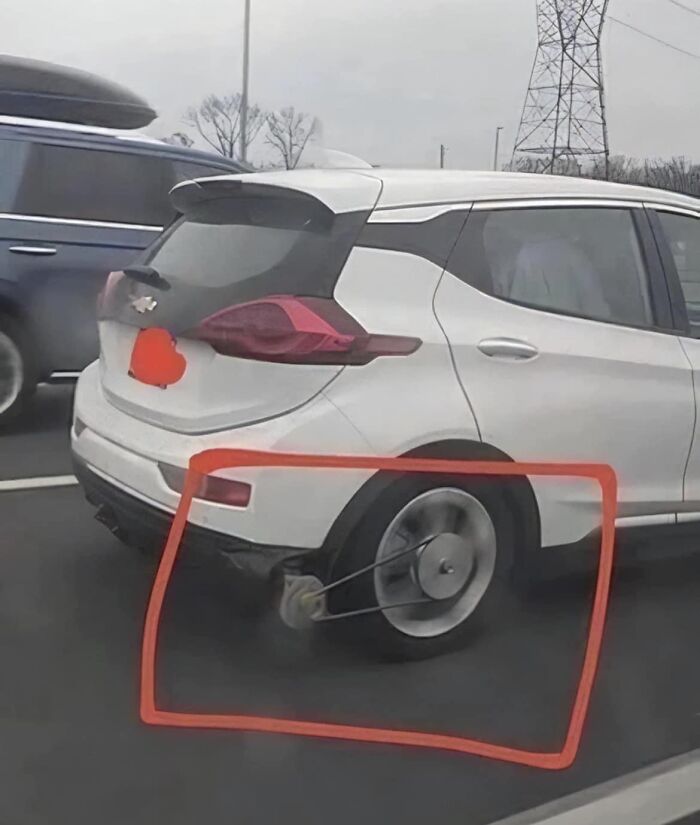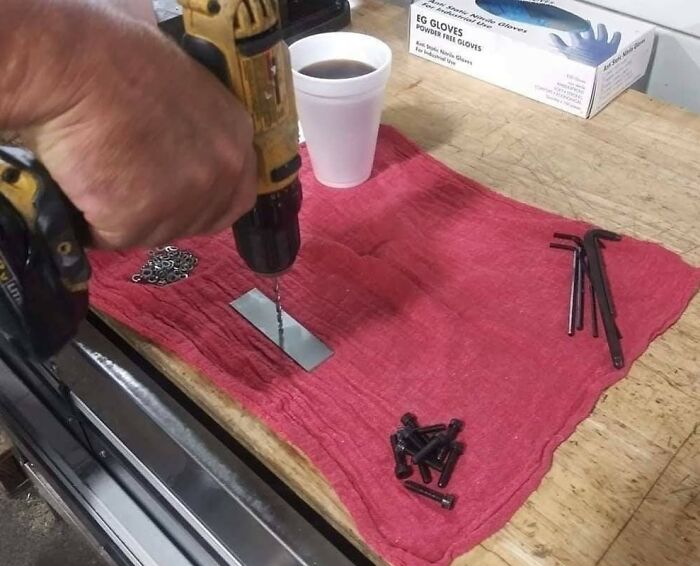
40 Times People Had Such Wild Solutions To Problems, They Ended Up On The “Anything Gone Wrong” Page
If you’ve ever owned a vehicle, you’ll know it doesn’t come cheap. The average cost of a new car in the U.S. is around $50,000. While a used one could set you back around $25,000. And it doesn’t end there. You’ll still need to factor in licensing, insurance, maintenance and fuel. One study found that Americans spend an average of $6,684 per year in hidden vehicle-related expenses. And that’s on top of their monthly lease or loan payments.
If you’re forking thousands, you can only hope that nothing goes wrong. And if it does, you’ll probably want to make sure that you’ve picked the right person to service and fix your vehicle. To drive the message home, Bored Panda has found some perfect examples of what can happen if you cut corners to save money. Keep scrolling for the most unhinged solutions to automotive problems, sourced from the Facebook page “Anything Gone Wrong”.
This post may include affiliate links.
"How to fix a rust spot"
"The new foot bridge is open"
I like it! You can sit and rest a bit and watch the river from inside too.
You might have heard before that most cars lose value as soon as you drive them off the showroom floor. And they’ll continue to depreciate for as long as you own them. By just how much depends on a few factors. The type of vehicle, the age, mileage, location and, of course, how well you look after it. According to the American Automobile Association (AAA), a medium sedan that’s driven 10,000 miles per year will depreciate by around $4,680 a year.
With that in mind, it’s probably in your best interest to keep your vehicle in a good condition. So that you get as much as possible back when/if you decide to sell or trade it in one day. It goes without saying that you should not take a leaf out of the book of anyone featured on this list.
"This guy walks around at night and pimps random peoples cars"
"Replacement door you ordered from Wish.com"
"A secret technique to protect your car against flooding"
One of the easiest and cheapest ways to look after your vehicle is to keep it clean. Whether you choose to take it for a professional wash or you do it yourself, a little sparkle goes a long way. But once every few months, you should book your car in for a wax as well, to preserve the paintwork and prevent corrosion.
If you’re doing the wash yourself, remember that washing your car under direct sunlight isn’t the greatest option. The heat will cause the water to evaporate faster than you can wipe it off, and this could leave annoying watermarks. You might also experience unwanted spots from soap foam that dried before you could rinse it off. You’ll also want to be super careful about the sponges or cloths you use, so you don’t end up scratching your vehicle.
Another very important tip is to take your car in for its service as and when required. For most cars, this is around every 5,000 miles or every six months. Whichever comes first. Those oil changes and inspections are super important, and the mechanic will let you know if there’s anything else that needs to be seen to. It is possible to do the oil changes yourself if the vehicle is just due for a minor service. But make sure you know what you're doing, and you use the right oil!
For some services, you’ll need to call in the professionals. Do not attempt to figure things out as you go along, or you could find yourself featured on a list just like this one. Nothing lasts forever, and at some point, certain parts on your vehicle will need replacing. By a professional. These include things like spark plugs, oil filters, fuel filters, PCV valves, belts and hoses. While some of the major services can cost a pretty penny, it’ll cost you way more if your car packs up altogether due to cutting costs.
"Is this even legal"
The last thing you need is for your brakes to fail in an emergency. So get them checked regularly. And if you notice anything unusual when braking, take your car in just to be safe. You may or may not be aware that a car has various fluids that keep it going smoothly. It’s not just a matter of fuel and oil.
You should aim to check the engine oil, coolant, power steering fluid and windshield washer fluid levels at least every month. You’ll also want to have your brake fluid checked every few months.
"Basketball taillight"
Don’t be like this person. Tire tread is important. As Bankrate notes, “low tread on your tires puts you at risk of losing control of your vehicle, particularly when you’re driving in the rain, sleet or snow.” You don’t have to take your car to a professional to have this checked. You can buy a gadget that treads the depth, or you can use a penny.
“If you choose the latter, insert the penny upside down into the tread with Abraham Lincoln’s face looking outward,” reads the Bankrate site. “If Lincoln’s head is fully visible, you probably need new tires. Take the car to a tire dealer to confirm.” And if you are advised to get new tires, it goes without saying that you should take the advice.
On the topic of tires… Don’t forget to check your tire pressure. It affects vehicle safety and fuel fuel efficiency. Newer vehicles will alert you on the dashboard if your tire pressure is low. But if you have an older model, you can either buy a tire-pressure gauge or you can go to the gas station.
Most cars have a sticker on the inside of the driver’s door that’ll tell you exactly how much tire pressure your car needs. And remember, this changes depending on how loaded (with passengers or luggage) your car is.
If you hear, smell or see something weird, you probably want to have it investigated by a qualified professional. Anything out of the ordinary should be a red flag. And while it might be tempting to ignore the signs because you’d rather save money, you've been warned: Doing so could end up costing you thousands more when you one day get completely stuck on the side of the road. And have no choice but to call a mechanic. The same goes for when your car is crying out for help. Any alert on the dashboard warrants a car doctor. Not an easy fix at home.
Have you ever had a vehicle that still gives you nightmares to this day? Or have you been duped by a clown masquerading as a mechanic? Perhaps you thought you could do a quick home fix, only to end up regretting it later? We want to hear all about it! Be sure to let us know in the comments.
"Hillbilly brilliance"
It works. One time I did a temporary fix like this with locking pliers.
"Still leaking"
I will quote from the movie City of Ember (2008). Elderly plumber talking to teen apprentice plumber: “We've been patchin' so long, we have more patches than pipe.”
Hopefully poster has a cooler full of ice prepared and has already dialed 9-1 on their phone.
"Anybody done this before? Is 18" A enough to slide in new headers and work underneath?"
Having had some (limited) experience with fiberglass patching, when I got my first car, it had some pretty good-sized areas of rust, so I covered them up with fiberglass, and while it definitely covered the rust spots, the patching material sort of drooped while it was curing, and made my car look like it had a tumor. I remember bringing it into the car wash some weeks later, and hearing every employee laughing their butts off when they saw it.
The first 5 or 6 were actually pretty clever, but it went downhill rapidly after that.
Having had some (limited) experience with fiberglass patching, when I got my first car, it had some pretty good-sized areas of rust, so I covered them up with fiberglass, and while it definitely covered the rust spots, the patching material sort of drooped while it was curing, and made my car look like it had a tumor. I remember bringing it into the car wash some weeks later, and hearing every employee laughing their butts off when they saw it.
The first 5 or 6 were actually pretty clever, but it went downhill rapidly after that.

 Dark Mode
Dark Mode  No fees, cancel anytime
No fees, cancel anytime 










